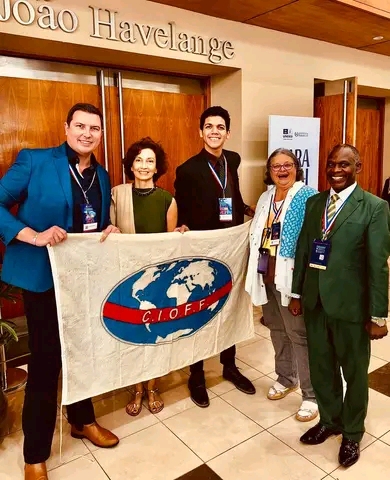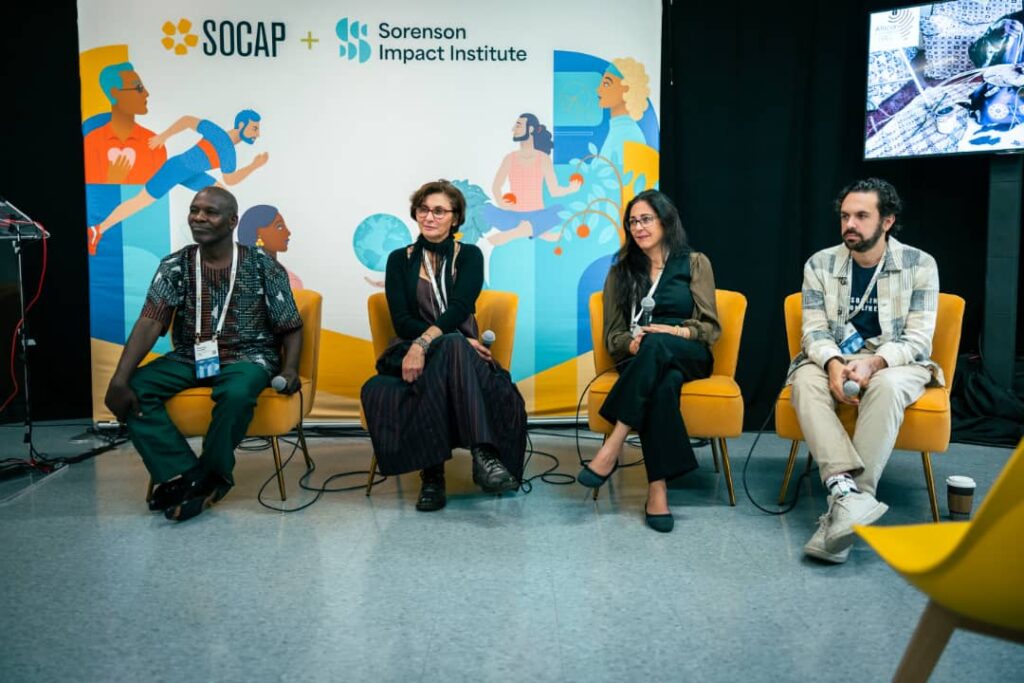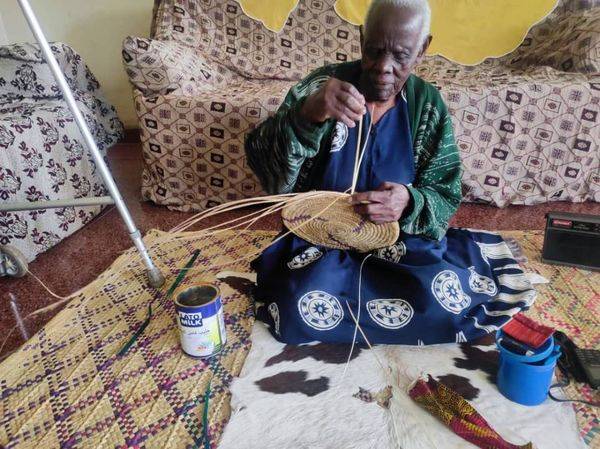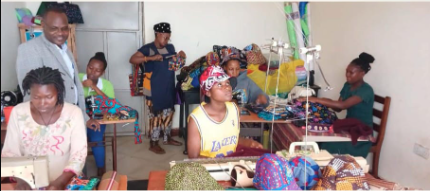Asuncion, Paraguay, December 8, 2024, Stephen Rwagweri, founder of African Continental Crafts, had a significant moment with Ms. Audrey Azoulay, Director-General of UNESCO, during the 19th Session of the UNESCO Intergovernmental Committee for the Safeguarding of Intangible Cultural Heritage (ICH).
Held in Asuncion, Paraguay, from December 1 to 8, 2024, this prestigious gathering brought together global cultural leaders and organizations, including CIOFF, the International Council of Organizations for Folklore Festivals and Folk Arts, to discuss strategies for safeguarding and promoting intangible cultural heritage worldwide.
Mr. Rwagweri’s presence at the event highlighted the pivotal role of African crafts in preserving cultural heritage and promoting sustainable development. Representing African Continental Crafts, he used the platform to advocate for greater recognition of Africa’s artisanal sector as a key contributor to global cultural diversity and economic resilience.
During his interaction with Ms. Azoulay, Mr. Rwagweri emphasized the importance of integrating African crafts into global cultural policies and safeguarding frameworks. “African artisans are the custodians of our continent’s rich heritage. Their work transcends economic value; it is a bridge connecting generations and fostering cultural understanding,” Rwagweri said.
Ms. Azoulay expressed her admiration for the work of African artisans and the efforts of African Continental Crafts in preserving and promoting traditional practices. The meeting underscored the shared commitment of both parties to fostering inclusivity and sustainability through cultural heritage.
The 19th session of the UNESCO ICH Committee provided a vital platform for discussing measures to protect and sustain cultural heritage amid globalization and modern challenges. For African Continental Crafts, this was a valuable opportunity to strengthen its global network, engage with cultural policymakers, and champion the potential of Africa’s artisanal sector on the world stage.
For more about African Continental Crafts and its mission to elevate African artisans, visit africancontinentalcrafts.com.






